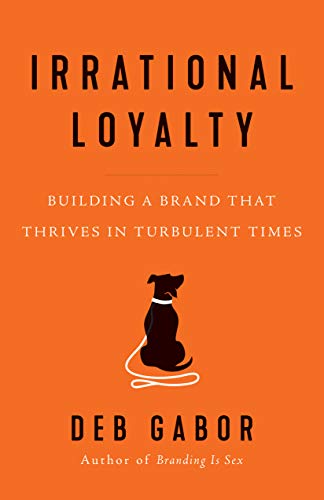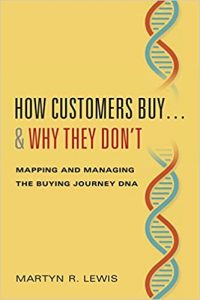“Irrational Loyalty” Provides Useful Tips for Building Brands in the Modern Era

I know what you’re thinking. Books like Irrational Loyalty: Building a Brand that Thrives in Tubulent Times by Deb Gabor just rehash what you probably learned in Marketing 101. Is the market for books on marketing oversaturated?
What makes this book different is that it covers the numerous factors that goes into building loyalty to your brand over decades, like Coca-Cola or P&G have done. Both make products that you’d recognize instantly when you see their packaging even if you don’t see the name of the products right away.
Deb Gabor founded Sol Marketing in 2003. Sol Marketing led successful marketing campaigns for top brands like Dell, Microsoft, Allrecipes, and Cheezburger. In Irrational Loyalty, she shares examples of responses to potential PR disasters that impressed her and also shares the poor handling of PR disasters that made her cringe.
The number one takeaway is that how you respond when things go wrong matters. You can get it completely right and strengthen your brand. Or you can get it completely wrong and tank your brand.
It shows you how to navigate an era in which the Internet exists even though it says it’s not 100% about the Internet anymore. It’s about a world where your brand can face a crisis if somebody misuses your product for views on a TikTok video or makes headlines by using your product for all the wrong reasons. Scandals and rumors can spread literally as fast as photons. Mistakes can go viral fast when everybody essentially has a video camera in their pockets and can upload short videos to their social media platform of choice with a couple of clicks. A marketing decision can backfire or be the most brilliant thing you ever did.
Measuring public sentiment against the strength of your brand matters. When you’re the CEO of a big oil company, you should realize that your company already has a bad reputation with environmentalists and not whine that “you want your life back” when an oil rig blows up and spills tons of oil into the Gulf of Mexico. But when you already have a decades-long reputation for making household products that are safe when used correctly, you can get away with a little polite pushback when parents want you to slap another warning label on Tide Pods because teenagers are eating them.
Another thing to think about: Who’s your ideal customer? Who would you love to see carrying your product around in public or using it in their backyard or whatever? What would you say about how you would like your products to be used if you wake up and find that they’ve gone viral for all the wrong reasons? The maker of Tiki Torches faced that question and its response on Facebook, that it preferred that Tiki Torches be used for backyard family gatherings and not for a protest by white supremacists, was exactly the right thing to say.
There’s a lot to unpack in Irrational Loyalty. It covers not only examples of what companies did right or wrong when their brand faced a public relations crisis, but also the importance of making sure employees aren’t doing things behind the scenes that’ll humiliate you if their actions become public, treating your customers like humans, and offering something that they can’t get anywhere else and will actually use. You should be like Coca-Cola, P&G, and every company that can survive the occasional internal misfire (I mean, New Coke??) or a trend or event that’s out of your control but might reflect negatively on you anyway.
So basically, Irrational Loyalty: Building a Brand that Thrives in Tubulent Times by Deb Gabor is not just for marketing professionals, but also for CEOs and VPs that have seen the major meltdowns in a C-suite executive’s response to a PR crisis and want to know how they can avoid it. Pick up this book. You won’t regret it.








